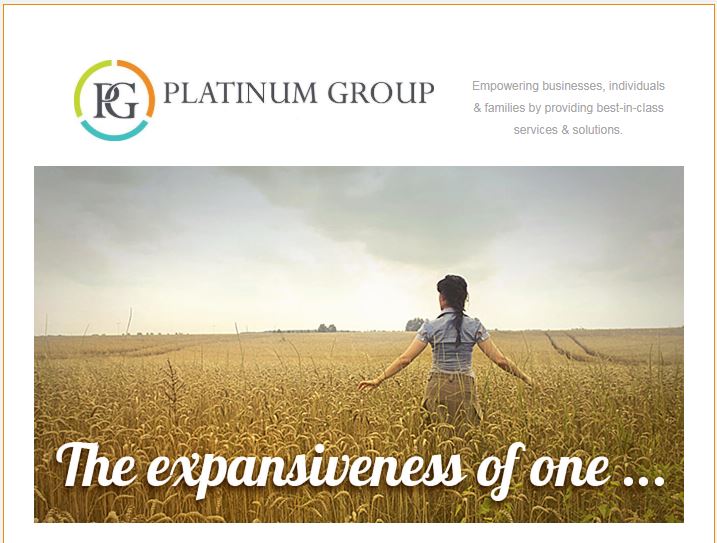Employee engagement is fast becoming a top priority for companies. Gallup reports that on average, an astonishingly low percentage (30%) have been engaged at work over the past 18 years. Retention and recruiting are essential components as well, as the new-hire pool remains sparse. When an employee is truly engaged and loyal, they are operating at a high level of performance, and they successfully incorporate the company’s mission, vision and values into everything they do.
Possessing the ability to see the positive aspects and potential in any situation has far reaching effects into the quality of our business and personal lives. It relieves stress, cultivates joy and generosity, and improves our relationships with those around us. So how can these benefits translate into our working lives?
What is it to be Grateful?
Being grateful is recognizing the efforts other people make to help us achieve success. Gratitude in the workplace recognizes the interdependence of employees and the fact that success comes from team effort. It requires vulnerability and admitting that you need someone.
Unfortunately, people are less likely to show gratitude at the workplace than anywhere else. A survey by the John Templeton Foundation revealed that people acknowledge the need for gratitude, but do not relate it to the work environment. Despite its potential benefits, gratitude is often seen by leaders as a social necessity rather than a tool for improving employee performance.
Where is Gratitude in Business?
Many businesses, from nonprofits to Fortune 500 companies have adopted formal workplace gratitude practices. The former CEO of Campbell Soup wrote 30,000 thank you letters to his employees. Southwest Airlines [voted 13th Best Employer of 2018 by Forbes] acknowledges milestone events in the professional, but also personal lives of their employees, which has helped their team feel that Southwest cares about them, not just as employees, but their happiness as individuals as well.
Four major benefits when gratitude becomes part of the workplace:
1. Employee engagement increases
Engaged employees are enthusiastic about their work. They are more committed to achieving the shared company goal. They are willing to go the extra mile to make things happen. It has been proven that focusing on employee strengths and expressing gratitude for them creates an engaged workforce.
One research study showed drastic results in employee performance when positive words of praise were used. When the director shared that they were grateful to the call center employees, and that they appreciated their hard work, those employees made 50% more calls the following week than a set in the study that received no positive words of encouragement.
Consistently voicing your appreciation for the role your employees play in your organization’s success is guaranteed to increase employee engagement. It boosts team spirit and motivates them to be more involved in the day to day activities.
2. Job satisfaction improves
Employees are no longer content with crunching numbers that prove productivity. They want to have a tangible impact. There is no better way to achieve this than being grateful for their input. Remember, gratitude shows that you need them. What better way to make an impact than to work where you are needed?
3. Job performance rises
Rick Hanson, Ph.D., says the neural structure of the brain is changed when we adopt a practice of being grateful. When holding a positive thought of gratefulness, we should slow down, and hold that thought in our minds for 30 seconds. By doing so, it creates “lasting neural resources, … our brains can rewire, and change old beliefs.”
A positive mental state, in turn, affects physical wellbeing. People are more likely to exercise, eat healthy diets, get more rest and are less likely to smoke or abuse alcohol. When employees experience mental and physical balance, they are naturally more productive in the workplace.
4. Positive work culture develops
Gratitude opens the door to other emotions that are beneficial for the workplace. Empathetic workplaces where everyone practices compassion are the goal for the future. Achieving an emotionally intelligent environment can be difficult due to the perception of corporate culture and workplace politics.
It’s easy to start with gratitude. Over time, everyone in the workplace will realize how important it is to be empathetic. Emotions like forgiveness, consideration for others’ circumstances and sacrifice come easy once gratitude is in place. Eventually, the competitive mindset that comes with bitterness and jealousy or the indifference from lack of motivation will not have a place in your organization.
8 Ways to Cultivate the Habit
Karin Volo, an expert in employee engagement, organizational development, and bestselling author says it best: “Make it a conscious habit to cultivate gratitude in your life. Whether you are appreciating your employees or looking at what is going well in your own life, gratitude is one of the most powerful emotions that brings positivity and well being into your life.”
Robert Emmons, a UC Davis psychology professor and author tells us, “Most of our waking hours are spent on the job, and gratitude, in all its forms, is a basic human requirement.” “Grateful individuals live in a way that leads to the kind of workplace environment that human beings long for,” Emmons says.
Incorporating the experience to improve our well-being, all the way down to a neurological level, repetition and consistency are key. Here are some of the ways Janet Miller, ForbesWomen, suggests people cultivate and grow their gratitude:
- Remember the Little Things - Appreciate everything, not just the obvious. Even the smallest thing helps us to see all that we have to be grateful for.
- Include Challenges - It is easy to be grateful for things that make us happy, but when we are able to be grateful for the lessons hard things teach us, we can see what our character has been built upon.
- Practice Mindfulness - Taking time to be still, contemplating gratitude, and feeling it throughout our entire being can shift our perspective on our lives, and rewire our brain to feel more joy. After 8 weeks of daily practice, patterns in the brain that relate to happiness can be detected.
- Keep a Journal - Writing down what we are grateful for lends itself to greater focus, and the act of hand writing stimulates large areas of the brain that activate thinking, language, memory, and healing.
- Volunteer - When we do something kind for someone else, especially with a group, it not only helps us see what we are grateful for, but increases our empathy for others as well.
- Write Thank You Notes - This helps people feel connected to each other, feel socially valued, and a part of the deeper purpose they are serving.
- Spend Time with those You Love - Spending time with people we care about is an easy way to start our gratitude list. It is a safe place to practice kind acts of gratitude.
- Improve Your Happiness - Gratitude can affect happiness, but happiness can help us be more grateful. By engaging in hobbies we love, or releasing endorphins by exercising, we can utilize this as a launch pad into gratefulness.
Final Thoughts
When we let our best selves show up for the job, we will not only be performing at our highest, but we will be inspiring others to do so as well. Developing strength within a team where positivity and trust thrive, sets the company up for success. With a grateful and engaged work force, valuable employee retention is more likely, and the sights for the company’s culture and growth should be set very high.
About Platinum Group
We offer a full range of HR solutions including helpful tools like Certifications and Awards to Performance Engagement. Not every company can afford to have a dedicated in-house HR team, but every company can benefit from having an experienced HR team on their side. Our services can provide you with that, and much more.
Platinum Group is a full service human capital management (HCM) resource that allows businesses to manage their payroll, benefits compliance, track time and attendance and other various human resources functions in a way that maximizes efficiency and eliminates redundancies with the platform, iSolved. For more information about Platinum Group or to schedule a demo of iSolved please visit our website.






















